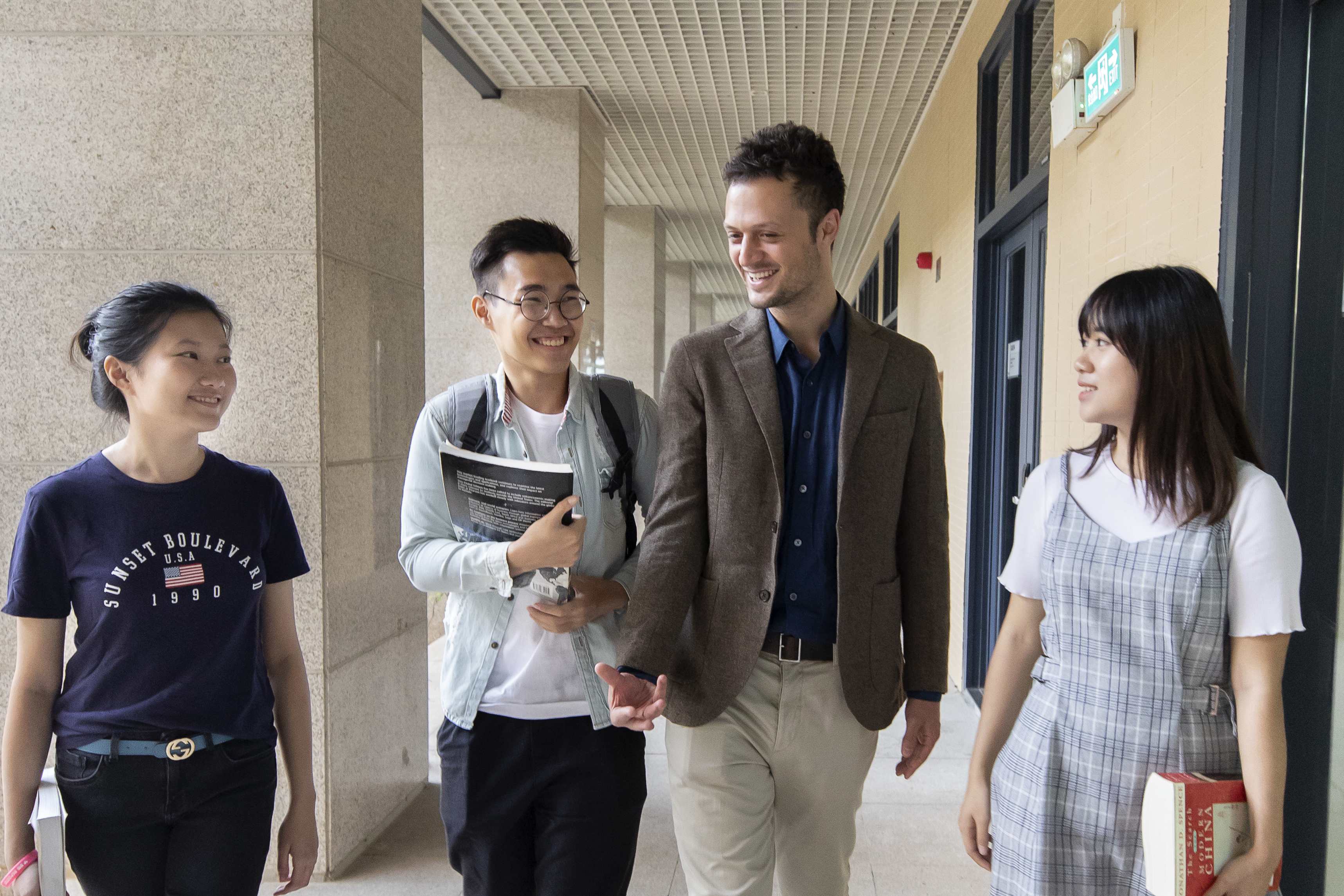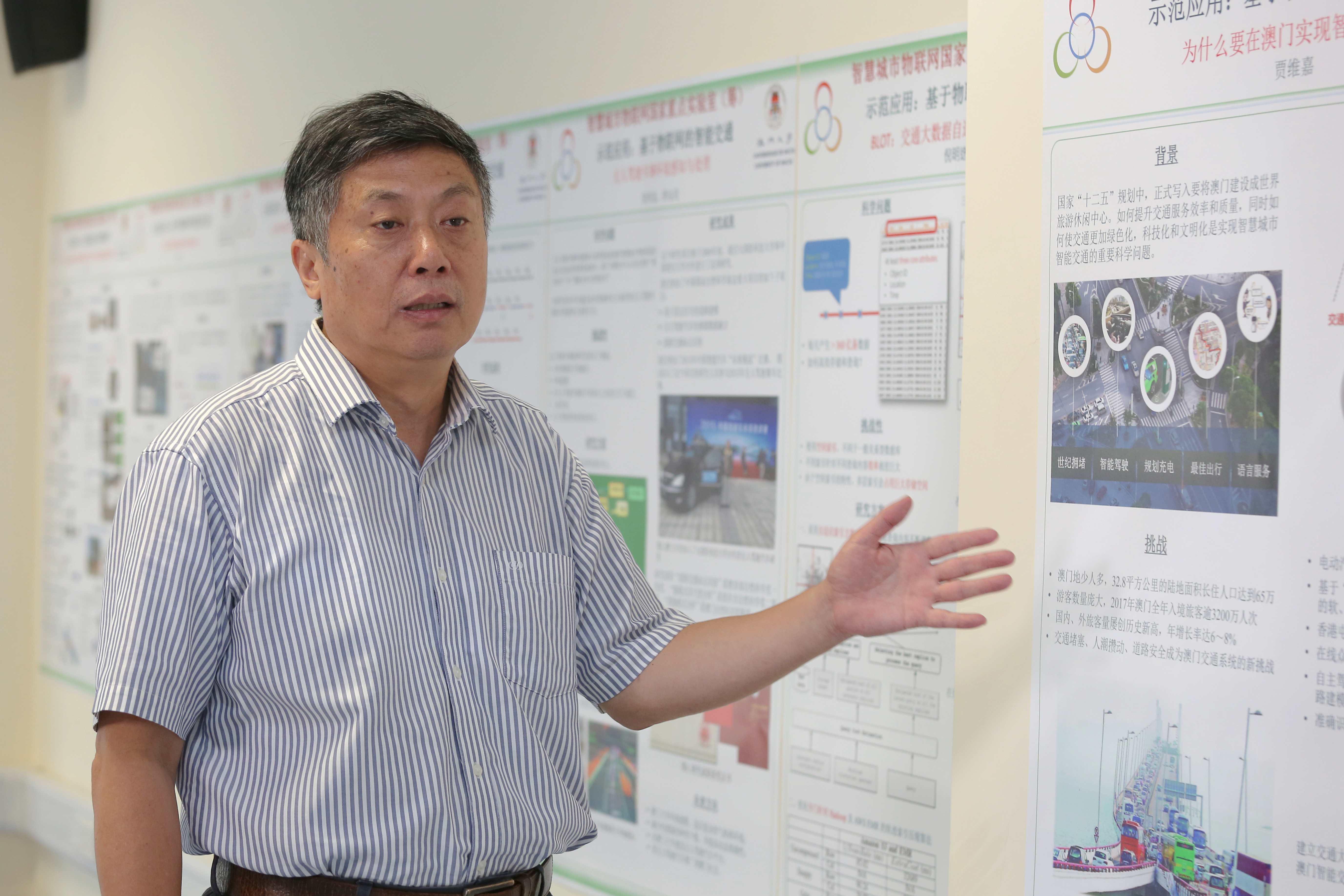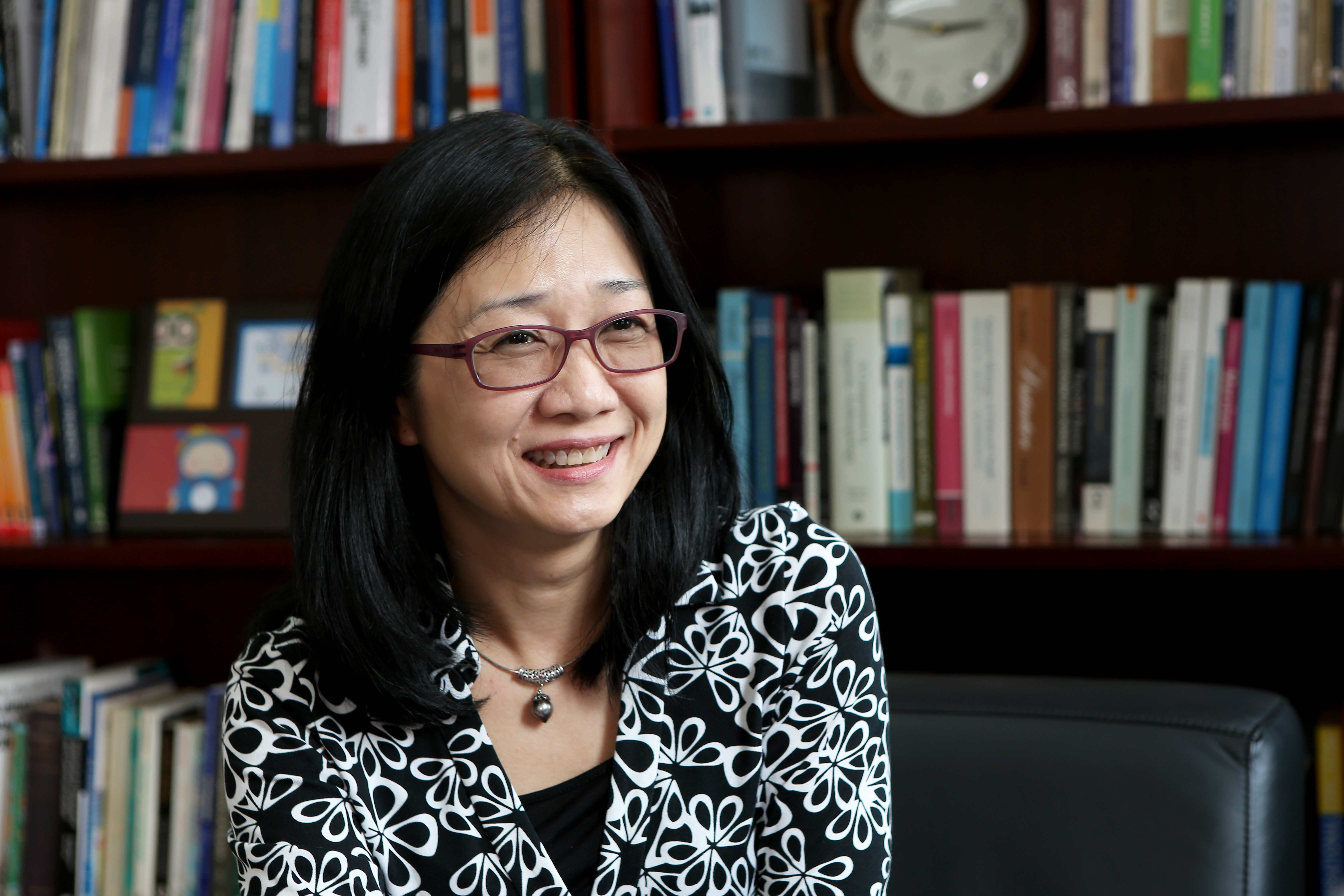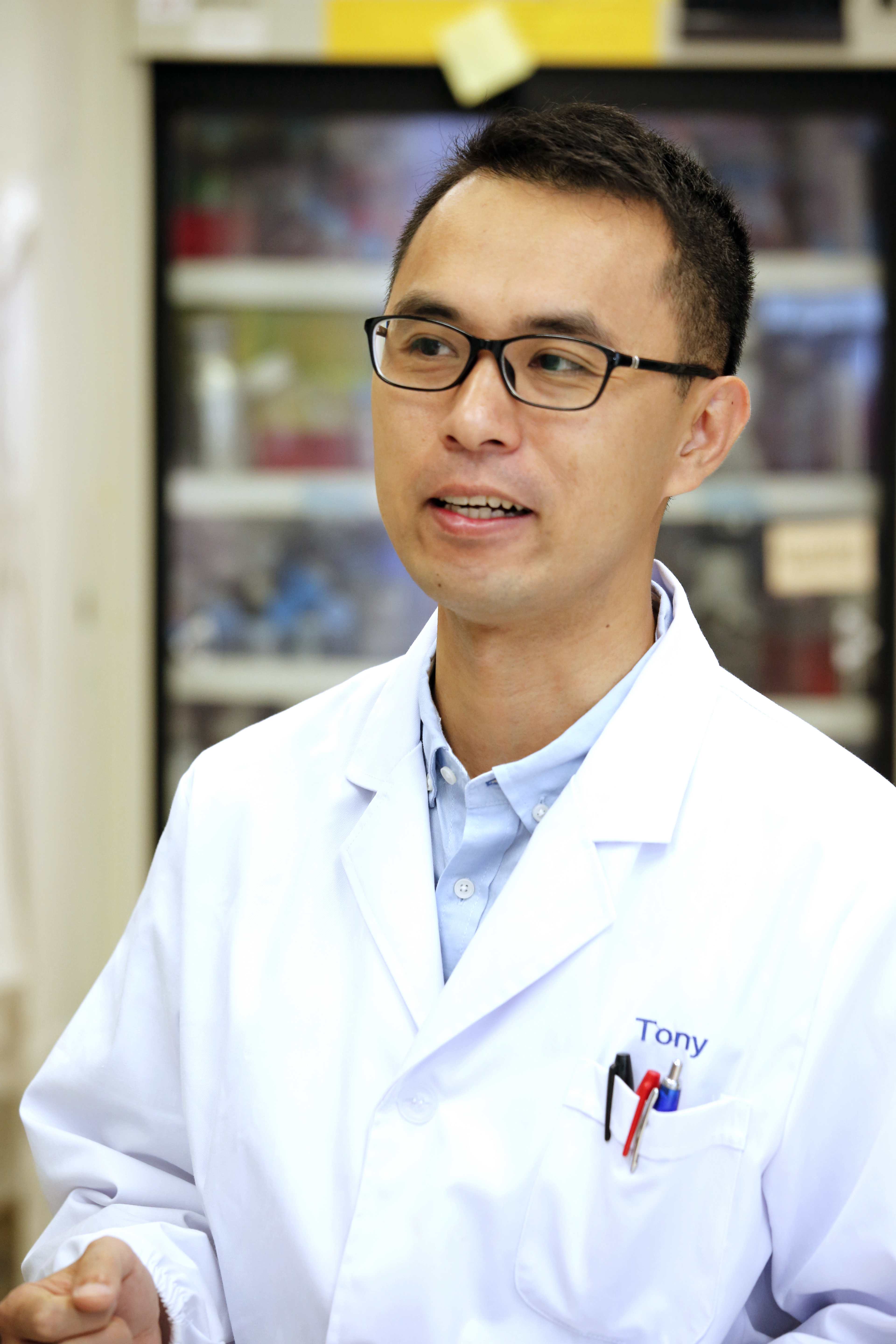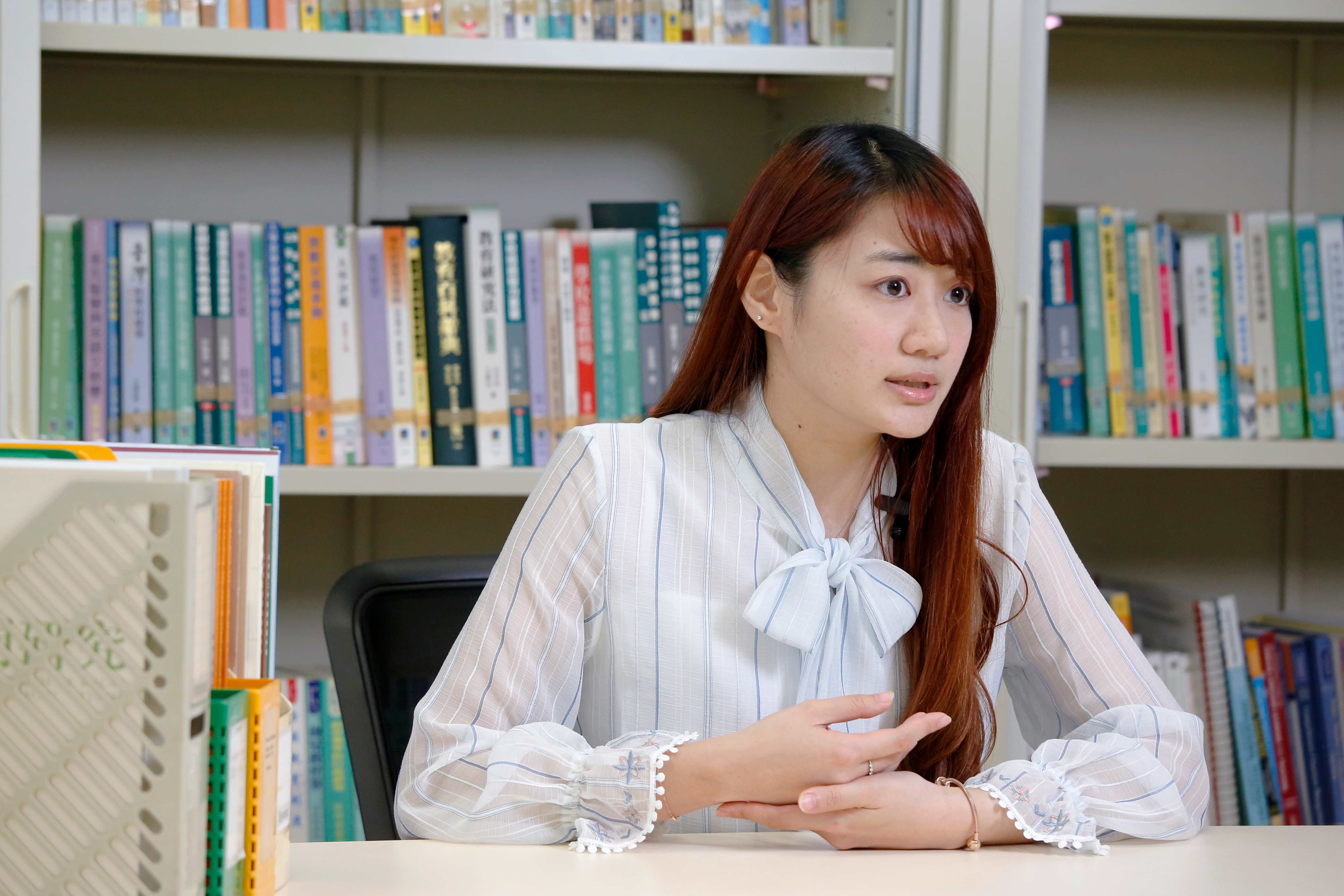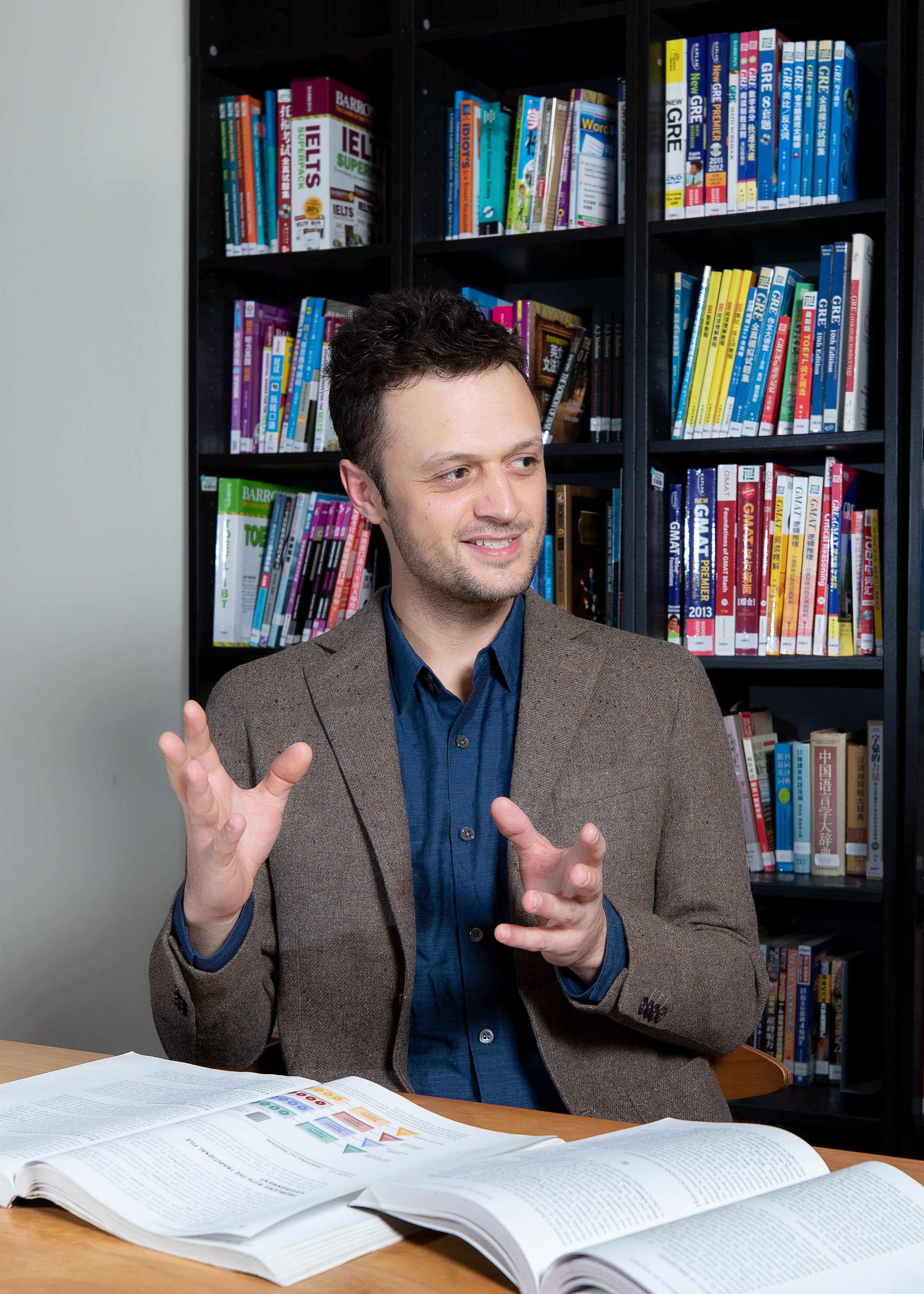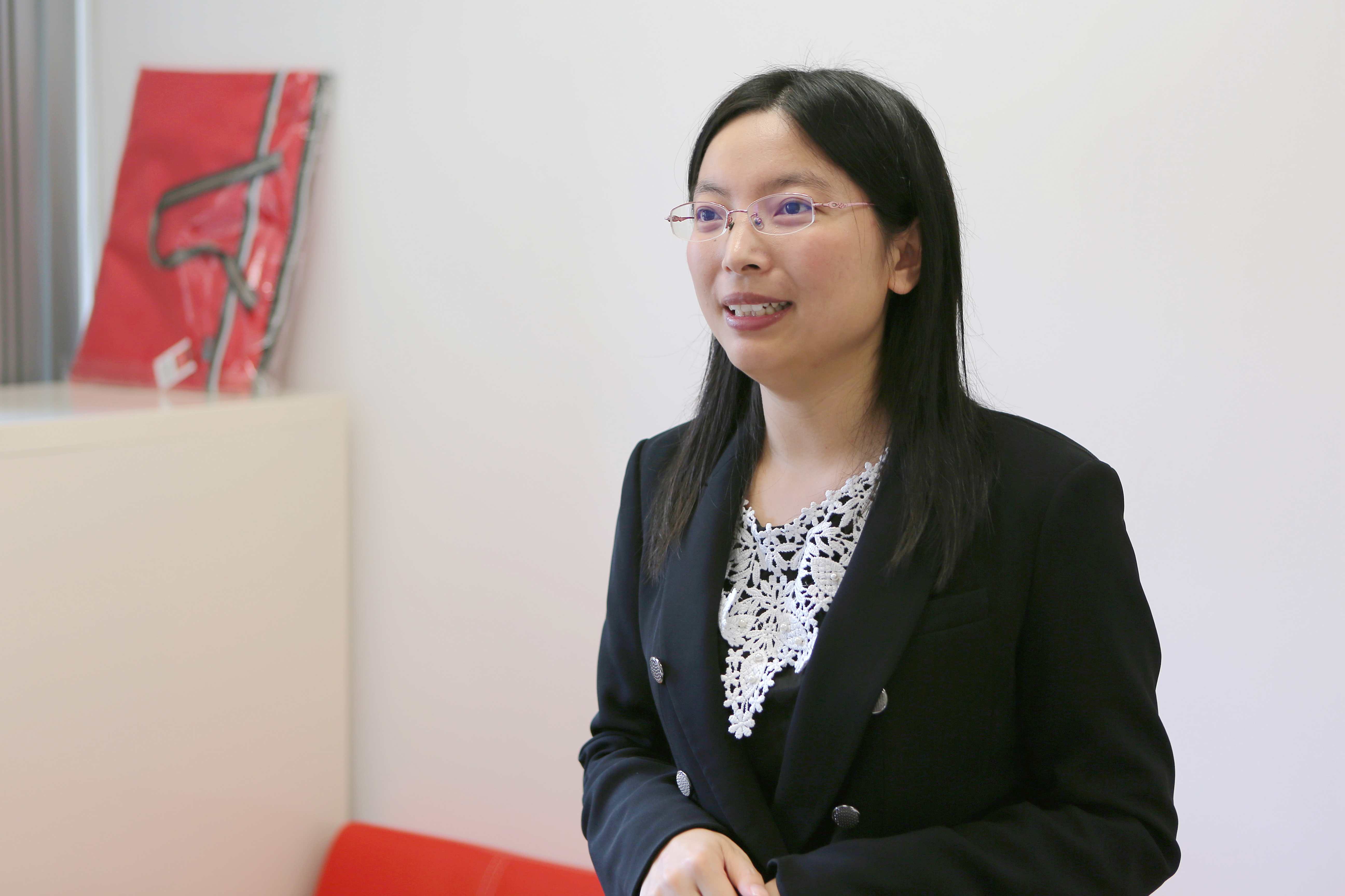Teaching and Research on Data Science
Among the new faculty members is Prof Jia Weijia, an expert on big data and smart cities from Shanghai Jiaotong University where he was a chair professor. Now a chair professor of computer and information science and head of the Centre for Data Science at UM, Prof Jia devotes himself to two important tasks – developing the newly established State Key Laboratory of Internet of Things for Smart City and planning for a two-year master’s programme in data science to be launched next year. ‘The lab concentrates on urban big data, smart sensors, smart energy, smart transport and urban emergency management. I am positive that UM will see some signature research outcomes very soon. And the data science programme is innovatively designed to empower professionals from different sectors to use big data and artificial intelligence,’ he says.
While Prof Jia is still new to Macao, he has already received support from the Science and Technology Development Fund of Macao for some projects and started supervising a PhD student and several master’s students. Amazed with UM’s outstanding campus and laboratories, Prof Jia says, ‘Thanks to the great research environment at UM, I have been in good spirits since starting to work here.’
Finding Effective Strategies for Teaching English
Prof Katherine Chen from the University of Hong Kong was recently appointed to serve as the director of the English Learning Centre at UM. She studies sociolinguistics, linguistic anthropology and applied linguistics, with a particular interest in standard language ideology. Observing UM’s progress over the past decade, Prof Chen sees this young university has huge potential for further growth, a process in which she wants to play a part.
As a keen researcher of bilingualism, Prof Chen believes her experience can help bring about a more effective way to teach English to UM undergraduates. ‘I’m teaching two classes of academic English, which is the third level in the curriculum in English Language Centre. I really like the experience because it gives me a better sense about students’ ability, struggles and strengths,’ says Prof Chen, adding that she has been working with her team to draw directions for curriculum reforms to better meet students’ learning needs. Even before coming to Macao, Prof Chen had no doubt that her new job would come with many challenges. ‘But so far those are within my expectation, and I’m really impressed with my colleagues who have been giving me a lot of assistance and great, sage advice,’ Prof Chan says.
Exploring East-West Intellectual History
Joshua Ehrlich joined UM as an assistant professor in the Department of History after earning a PhD from Harvard University. His research interests include intellectual history, the history of South Asia and Southeast Asia, and the history of the British Empire. Also a fellow of Cheong Kun Lun College, Prof Ehrlich has been adapting smoothly to his life in Macao. Last month he started taking a Chinese language course in UM’s Confucius Institute, hoping to engage closely with academics in Macao, Hong Kong, and mainland China.
Prof Ehrlich recalls that he was drawn to UM partly by the fact that Macao kept coming up in his previous research. Appreciating the territory’s unique historical role in East- West relations, he sees Macao as an ideal place for his work to develop. ‘Most famously, the Portuguese have a presence here for some hundreds of years, but in my own research I found that there were also British, American, Armenian, a great variety of people moving through this place,’ Prof Ehrlich observes, adding that he would like to expand his research to investigate the British East India Company’s historical presence in Macao.
Using Big Data in Linguistics and Second Language Acquisition
Specialising in linguistics, second language acquisition, and corpus linguistics, Shan Wang joined the Department of Chinese Language and Literature as an assistant professor, having positively assessed UM’s rapid growth in shaping a multicultural and excellent environment for teaching and research in recent years. ‘I found the working environment here impressive, and my adaption to this warm and vibrant university with opportunities has been smooth,’ Prof Wang adds.
On her research goals, Prof Wang singles out interdisciplinary research as a priority. The new wave of growth in innovative technology, exemplified by the development of artificial intelligence and big data, generates many opportunities for us. I want to promote the development of relevant fields through doing inter –disciplinary research in the future,’ she says.
Seeking Pathogenesis of Neurodegenerative Diseases
Dr Chong Cheong Meng has been investigating the pathogenesis of neurodegenerative diseases, including Alzheimer’s disease and Parkinson’s disease. He was recently recruited as a lecturer in the Institute of Chinese Medical Sciences through the UM Macao Fellow Programme, which offers a three-year contract to successful applicants.
The programme aims to nurture young scholars from Macao and encourage promising local talent to pursue career development in Macao. Besides engaging in research at UM, successful applicants have the opportunity to work at reputable universities or institutions outside Macao as visiting scholars or researchers to enrich their teaching and research experience.
Dr Chong applies gene editing to introduce disease-causing gene mutations to human induced pluripotent stem cells (iPSCs) and perform differentiation of these iPSCs into nerve cells. He studies the mechanism of relevant pathological features in these iPSCs derived nerve cells with specific gene mutation by using cell biology, molecular biology, neuroscience and neuroimaging techniques, with an objective to explore new therapeutic targets and develop therapeutic drugs. As a new Macao Fellow, Dr Chong plans to seek a top laboratory in reputable university overseas next year where he can serve as a visiting scholar in order to learn the latest techniques regarding stem cell differentiation. ’I worked as a post-doctoral researcher for three years at UM, where I see tremendous potential. Through the opportunities offered by the Macao Follow Programme, I want to collaborate with overseas scientists for outstanding research outcomes, and bring the cutting-edge techniques and new research ideas to UM.’
Nurturing Future Educators for Macao
Born and raised in Macao, Dr Cathy Hoi recently became a lecturer in the Faculty of Education through the Macao Fellow Programme. A scholar in educational psychology and educational technology, Dr Hoi says, ‘As a Macao Fellow, I would like to take a step further to study how to enhance the psychological well-being of the teachers, as well as their soft skills, teaching quality and ability.’
Looking ahead, Dr Hoi plans to gain research and teaching experience at reputable universities in the United States or mainland China next year, where she will seek to deepen ties between schools in Macao and their counterparts elsewhere. ‘My goal is to bring new elements in education back to UM to help nurture educators of the future.’
Source: My UM

